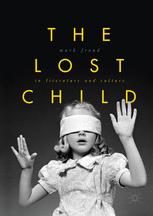

Most ebook files are in PDF format, so you can easily read them using various software such as Foxit Reader or directly on the Google Chrome browser.
Some ebook files are released by publishers in other formats such as .awz, .mobi, .epub, .fb2, etc. You may need to install specific software to read these formats on mobile/PC, such as Calibre.
Please read the tutorial at this link. https://ebooknice.com/page/post?id=faq
We offer FREE conversion to the popular formats you request; however, this may take some time. Therefore, right after payment, please email us, and we will try to provide the service as quickly as possible.
For some exceptional file formats or broken links (if any), please refrain from opening any disputes. Instead, email us first, and we will try to assist within a maximum of 6 hours.
EbookNice Team

Status:
Available5.0
25 reviewsThis book is an extensive study of the figure of the lost child in English-speaking and European literature and culture. It argues that the lost child figure is of profound importance for our society, a symptom as well as a cause of deep trauma. This trauma, or void, is a fundamental disruption of the structures that define us: self, history, and even language.
This puts the figure of the child in context with previous research that the modern conception of ‘a child’ was formed alongside modern conceptions of memory. The book analyses the representation of the lost child, through fairy tales, historical oppression and in recent novels and films. The book then studies the connection of the lost child figure with the uncanny and its centrality to language. The book considers the lost child figure as an archetype on a metaphysical and philosophical level as well as cultural.